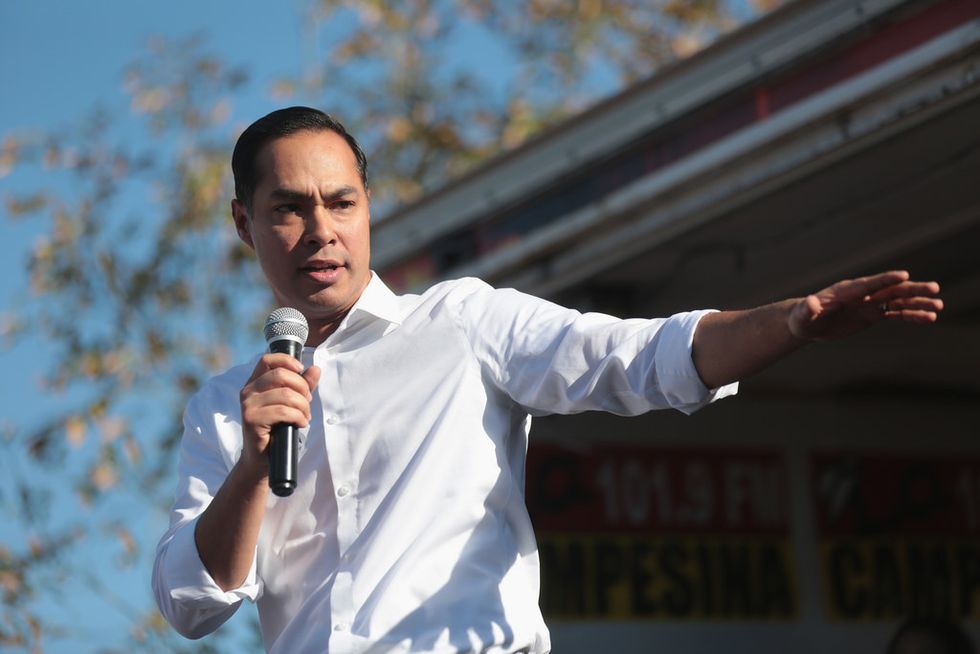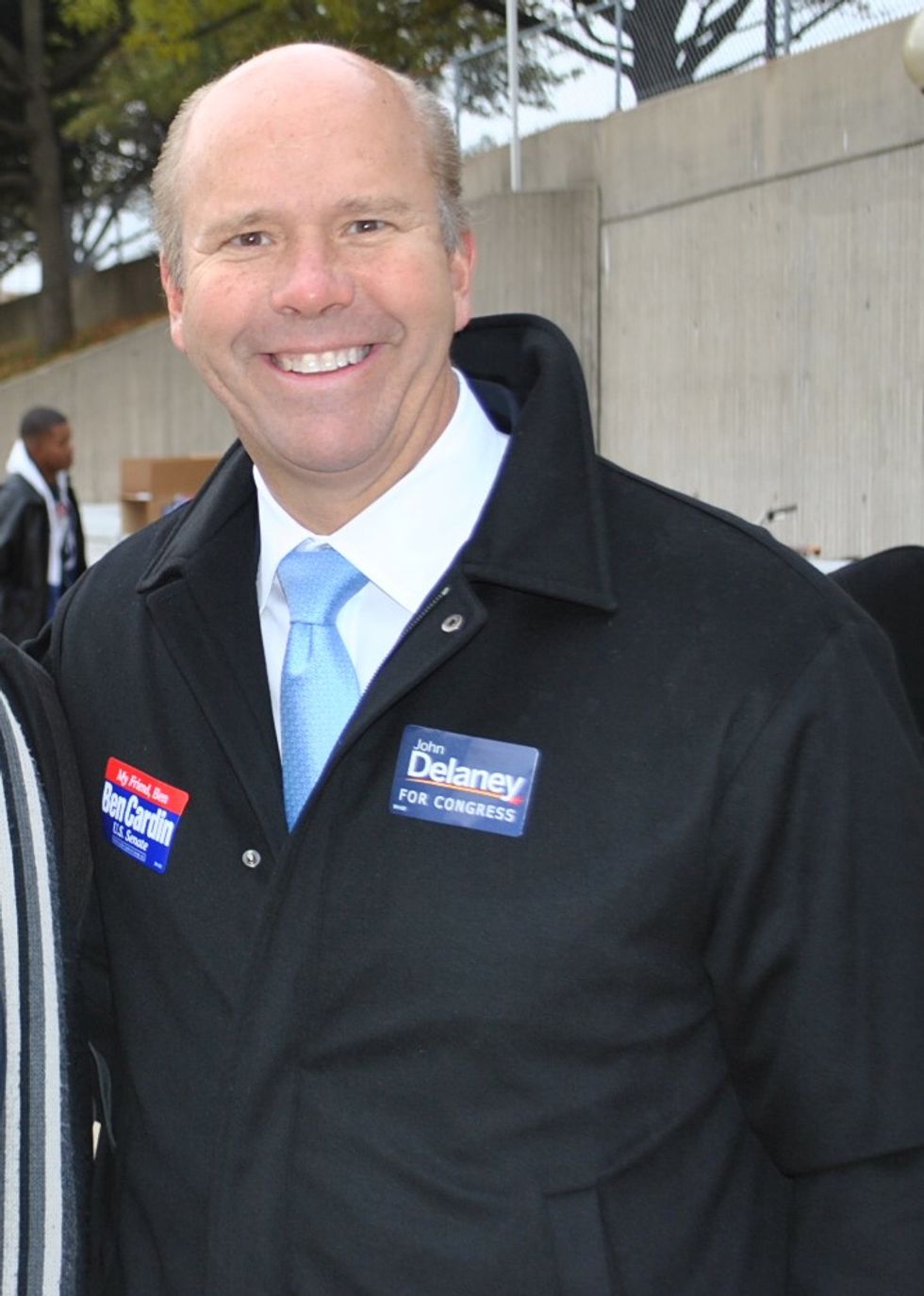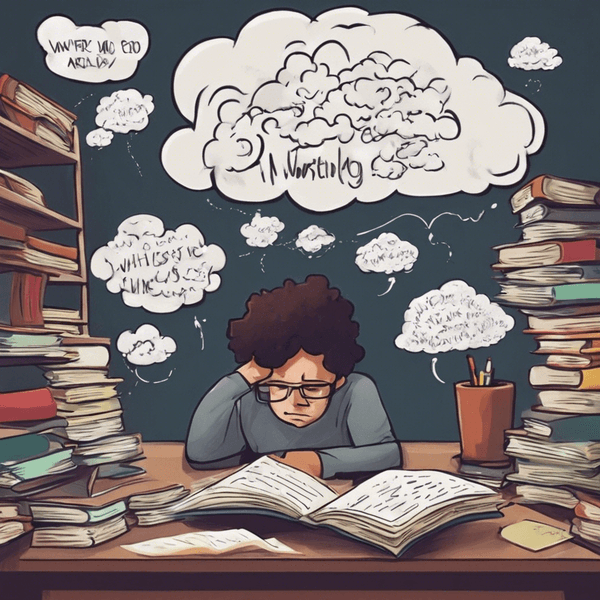Ben Shapiro's Audience DESTROYS Ben Shapiro For His Hawkish Stance On Iran
On his own video on his own channel, Shapiro was hit with a lopsided like-to-dislike ratio when he went after Iran.
Ben Shapiro seems to have been the victim of getting destroyed by his own audience, by facts and logic. (In case you've had the pleasure of living under a rock during his online upbringing, Shapiro is known for "destroying" liberals and feminists with his supposed "facts and logic.")
In recent news, an unmanned United States drone was shot down by Iran (Iran says the drone was over Iran's airspace, while the U.S. says it was over international waters). America was close to retaliating with missile strikes, but President Donald Trump backed out, seemingly at the last minute.
Ben Shapiro heavily disagreed with this decision.
As of the wee hours of the morning on June 25, his video on the subject has a measly 1.2K likes compared to 6.2K dislikes. That's over five times the amount of dislikes on his video than likes. The dislike ratio is certainly deserved. In the video, Shapiro just brushes off the death toll the planned strike would have resulted in. Trump himself cited one of his reasons for canceling the strike was because of the estimated cost of life.
This was a good backtrack for Trump. On the campaign trail, he was nauseatingly hawkish and terroristic, saying we need to go for the families of ISIS. Ben Shapiro is notorious for being a purported man of Judeo-Christian or pro-life values.
He calls upon his beliefs for inspiration for his anti-abortion stance yet he completely abandons his alleged principles when it comes to war.
Shapiro, in his retort to Trump's reversal, decided that lives spent in war shouldn't matter if they're on the other side. He decided that it's OK — necessary — to kill in response to the downing of an unmanned aircraft.
Ben Shapiro needs to get off of his high horse when it comes to defending zygotes if he's going to abandon living, breathing, viable people in favor of spending more American tax dollars and risking another conflict. If another country, say, Venezuela, for example, had said that they were willing to fight back against the United States by killing civilians, Ben Shapiro and the entire hawkish establishment would absolutely explode with outrage.
"It's a declaration of war! Americans in Toledo are going to be killed in the streets! We need to immediately start another illegal, undeclared war on Venezuela!"
But no.
The situation is reversed.
Ben Shapiro is fully convinced, just like the entirety of the mainstream media, that the United States is the world police and rightfully so. The other side is only poor, brown Muslim people, so he has less than no sympathy for them! You know what we call someone who's in favor of the murder of civilians for a political, nationalist or religious reason? A terrorist sympathizer. If you're so scared of terrorists, Ben, then perhaps you should scream your shrill shriek whenever you catch a glimpse of yourself in the mirror.
Beyond his typical contradictions in his supposed values (facts don't care about his feelings), he also fails to give any context on the history of Iran and how we established an American puppet dictator, nor does he care to mention that the United States will always be the more powerful actor and therefore the instigator.
His views on their own, as always, are ranging from disgusting to driven by non-truths. The catch with this incident is that he was left with huge backlash from his base.
I'd like to reiterate: he has more than five times the dislikes than he does likes on this video retort, 6,200 to 1,200. In comparison, his hour-long "Ben Shapiro Show Sunday Special Ep. 56" garnered 3.4K likes to around 200 dislikes.
Even his crowd unabashedly told him by the power of democracy that his stance is wrong. Ben Shapiro got royally DESTROYED, and we can only hope he'll post a video whining about his safe space being violated and micro-transgressions hurting his feelings.





































If Someone Checks Your Racism You're Not The Victim Here, So Here Are Some Tips For Not Acting Like It Either
The way you react to being accused of racism can have a bigger affect than the ignorance in the first place, so here's how to respond in those situations.
Psychology Today defines a "Microaggression" as "everyday verbal, nonverbal, and environmental slights, snubs, or insults, whether intentional or unintentional, which communicate hostile, derogatory, or negative messages to target persons based solely upon their marginalized group membership." To put it more plainly, its anything discriminatory that isn't 100% over.
With that in mind, it may seem to some that literally, everything is off limits to joke about nowadays. While the '90s and early 2000s was full of fake acceptance cloaking heavily problematic stereotypes, assumptions, and misconceptions about marginalized groups, it's left us with a heavy "us vs. them" mentality, with "regular people" on one end and "snowflakes" on the other.
"Snowflake" is a relatively new term commonly employed by conservatives to mock the emerging atmosphere of political correctness, "safe spaces" and the uphill battle minorities face in pursuit of equal rights.
The reason for this, among other things, is the fact that the emerging adult community was raised in the above mentioned standards that were upheld in the '90s and early 2000s. Therefore, we're left with people who think they can, and should get away with anything so long as they aren't waving a Nazi flag or sporting white sheets over their heads.
Studies confirm that many people harbor unconscious racial biases, whether or not they would classify as a full-blown racist.The thoroughly depressing reality of that aside, that along with white guilt, or a sense of shame white people may experience considering the demographic's historical treatment of people of color and other minority peoples, can make racial issues exceptionally difficult to talk about.
With lack of communication comes inevitable ignorance of how a comment, action or opinion may be considered offensive to a marginalized person, leaving many social interactions with both parties angry, sad or even fearful from its outcome.
Ignorance is often not the explicit fault of the ignorant person. However, the problem with today's society is not solely ignorance, nor that people are too sensitive all of a sudden.
For the first time in the nation's history, the social climate allows minority people to be emboldened enough to call people out on their racism. This is a massive societal win for many marginalized groups who no longer have to stand in as a token for their demographic so corporations can meet their diversity quota.
Although, it was clearly not something the bulk of the nation was prepared for.
With the mixture of this newfound liberation for minority groups, an ignorance that has spanned centuries and how difficult people find it to communicate about racial issues, we have the perfect storm for someone to go on the defense instead of treating the accusation of racism as a learning experience.
Thankfully, the concepts behind responding in an appropriate way are pretty straight forward.
1. You Are Not The Victim Here.
There are too many people who get accused of saying something offensive, then immediately go on the defensive. This gets everyone absolutely nowhere.
It probably really sucks to feel like someone thinks you're a terrible person, especially when you didn't realize you were in the wrong. Considering America's history with racism, being singled out for contributing to that is going to bring up a lot of feelings. So naturally, people may turn to arguing and making excuses for the terrible thing they did or said.
The pro-level of this reaction is when a person points out something ignorant or discriminatory, then the accused starts crying.
This immediately takes the attention off of the victim and onto the offender, because the offender then needs to be consoled before any progress in the interaction is made.
Any of these reactions, or feeling that someone is being "mean" to you by checking your ignorance, is a product of white privilege. So, if you care about being a good ally to the marginalized section of our community, its best to save the crying or yelling as a last resort.
2. Apologize First.
Do not pass go, do not collect $200.
Apologizing first, even if you don't understand what you've done, keeps all doors of communication open so you can dig deeper into the situation a little more.
Even if you don't feel remorse—out of ignorance, stubbornness or skepticism—apologizing first acknowledges that they are a human that deserves respect which you've just violated somehow.
Here our pre-school days come in handy, as we can all do well to "treat other's like we want to be treated". Think on how you'd feel if someone disrespected you in the middle of your day, then that empathy should be applied to whomever you've hurt.
If the accused responds in any way besides this, the opportunity for fixing things is annihilated, and the hurt that you both are feeling has no chance of being relieved. Granted, after an apology has been issued and a conversation follows, you might still feel that you're in the right or feel bad in general. However, you still did your best to alleviate some of their discomforts, maintained the cordiality of the relationship and know how to avoid similar situations in the future.
3. Prove To Yourself And Them You're Not A Bad Person
I'm multiracial but look white as hell. I was ignorant as hell as a kid. I've been there where something you said offended when it was clearly not your intention. In fact, in the case of microaggressions, the intent is often not to offend.
So, now it's your job to do your best to prove to them and yourself that you're not a bad person.
The only way to accomplish this is by listening.
Listening to why they were offended, why its a problem and asking questions about the reasons behind it or how to avoid repeating the mistake in the future is the key to growing. And consequentially you might get to learn something that day, which everyone should be thankful for.
Facing these interactions humbly and with an open mind encouraged growth as well as learning, so even though you may feel like crap, this opportunity is definitely a good one.
4. Follow Through
After the badness has happened and been pointed out, an apology has been made and a conversation has been had, the effect of the situation should not end there.
If you're still a little unclear on the offense or want more information, take it upon yourself to watch a Ted Talk or two to keep the conversation going internally.
Then, it's important to actually apply what you've learned to your thoughts, words, and actions. Once it's been pointed out its much easier to identify discriminatory lines of thinking, reconsider previous opinions and even reevaluate how ignorance might be applied to other areas that you hadn't thought of.
If you feel they might still be upset, especially if they're someone you run into often or work with, a check in can go a long way, too. A simple "Hey, I just wanted to make sure you're still OK after the other day" can easy any resentment that might be lingering. Even if that still doesn't fix things, you know you've done everything in your power to make it right.
Even attempting to follow these steps can make all the difference in developing the quality of our interactions a safer society for everyone. Although this may seem like inconsequential in the grander scheme of things, change is truly inspired one baby step at a time, so don't knock it till you try it.